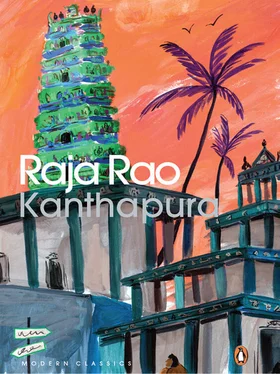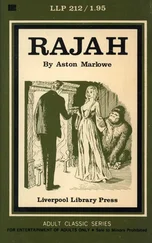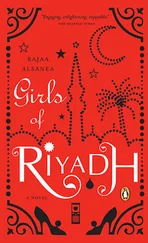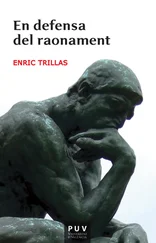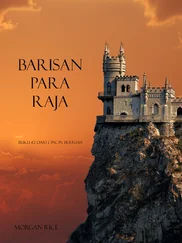For ten years deaths and births and marriages have taken place, and no one that came from the Godavery has ever gone back to it. And the old sahib is dead, and the new one, his nephew, has not only sent away many an old maistri and man, but he has bought this hill and that, and more and more coolies have flowed into the Skeffington Coffee Estate. He is not a bad man, the new sahib. He does not beat like his old uncle, nor does he refuse to advance money; but he will have this woman and that woman, this daughter and that wife, and every day a new one and never the same two within a week. Sometimes when the weeds are being pulled or the vermin killed, he wanders into the plantation with his cane and pipe and puppy, and when he sees this wench of seventeen or that chit of nineteen, he goes to her, smiles at her, and pats her on her back and pats her on her breasts. And at this all the women know they have to go away, and when they have disappeared, he lies down there and then, while the puppy goes round and round them, and when the thing is over he takes her to his bungalow and gives her a five-rupee note or a basket of mangoes or plantains, and he sends her home to rest for two days. But when the girl says, ‘Nay,’ and begins to cry at his approach, he whistles, and the maistri is there, and he asks the maistri, ‘To whom does this wench belong?’ and the maistri says, ‘She’s Sampanna’s granddaughter,’ or, ‘She’s Kittayya’s young wife,’ or, ‘She’s to be married to Dasayya the one-eyed’; and that night Sampanna or Kittayya or Dasayya is informed of it, and if he doesn’t send her, a week’s salary is cut, and if he doesn’t send her then, still more money is cut, and if he still doesn’t send her, he’ll get a whipping, and the maistri will entice the wench with this or that and bring her to the master. It’s only when it is a Brahmin clerk that the master is timid, and that since the day Seetharam wouldn’t send his daughter. The master got so furious that he came down with his revolver, and the father was in the backyard and the young son shouted out, ‘The sahib is there, the sahib,’ and as Seetharam hears that, he rushes to the door, and the sahib says, ‘I want your daughter Mira,’ and Seetharam says, ‘I am a Brahmin. I would rather die than sell my daughter.’— ‘Impudent brute!’ shouts the sahib, and bang! The pistol-shot tears through the belly of Seetharam, and then they all come one by one, this maistri and that butler, and they all say, ‘Master, this is not to be done.’ And he says, ‘Go to hell!’ and he takes his car and goes straight to town to see the district superintendent of police and there is a case, and it drags on and on, and the sahib says he will pay one thousand five hundred rupees, two thousand rupees as damages to the widow and children. But he paid neither one thousand five hundred nor two thousand, for the Red-man’s court forgave him. But everybody in the Skeffington Coffee Estate knows now he’ll never touch a Brahmin girl. And when a Pariah says, ‘No,’ he hardly ever sends the maistri to drag her up at night.
That is why, when Badè Khan came, the sahib said to himself, ‘This will be a fine thing — a policeman on the spot is always useful.’ And so it is, for Badè Khan has just to sneeze or cough and everybody will say, ‘I lick your feet!’ No, not exactly. Those Brahmin clerks Gangadhar and Vasudev go straight in front of him and do not care for the beard of Badè Khan. They are city boys, you see. And when they are there even Rachanna and Sampanna and other Pariahs say, ‘Let Badè Khan say what he likes, our learned ones are here. ’ And it is they indeed, Gangadhar and Vasudev, that took the Pariahs down to Kanthapura for the bhajans, and it is they that asked our learned Moorthy to come up. They said the Pariahs must learn to read and to write, and when they can do this they can speak straight to the sahib and ask for this and that, money and material and many holidays. Why should not Pariah Rachanna and Sampanna learn to read and to write? They shall. And Badè Khan can wave his beard and twist his moustache. What is a policeman before a Gandhi’s man? Tell me, does a boar stand before a lion or a jackal before an elephant?
Moorthy is coming up tonight. In Rachanna’s house and Madanna’s house, in Sampanna’s and Vaidyanna’s, the vessels are already washed and the embers put out, and they all gather together by Vasudev’s tin shed in the Brahmin lines to meet Moorthy. Now and again there is a rustle of leaves and it is one-eyed Nanjayya or Chennayya’s daughter, Madi, who is coming up from the lines, and once they are in the courtyard, they seat themselves on the earth and begin to whisper to their neighbours. Inside the house of Vasudev is seen a faint oil-light, and his widowed mother is seen to serve him his evening meal. The brass vessels shimmer and shake, and then there is only the long, moving shadow on the wall. There, in the streaming starlight, Kanthapura floats like a night procession of the gods over still waters, and up the Bebbur mound is seen a wavering lantern light. That’s surely he. Yes, he’s coming. He will be here soon.
‘Learned one, he is coming,’ cries out Rachanna, looking towards Vasudev’s shed. ‘Can’t you shut your mouth, you Pariah!’ shouts back Vasudev’s mother. ‘You always want to pollute the food of Brahmins with your evil tongues.’—Rachanna does not care. She’s an old sour-milk, she is! Vasudevappa does not speak like that, does he? Then there is a rustle of leaves again and the heavy tread of Badè Khan’s boots is heard. He skirts Vasudev’s courtyard, and with his lathi in his hand and his mongrel before him, he passes on along the main path down the hill towards the gate. Between the creak of bamboos is heard the creak of the gate, and after that there is nothing but the creak of bamboos again and the whispered chatter of men.
The moving light is seen by the tortoise rock and it dips now into the watery rice fields and now into the wake river, and sometimes it rises sheer across the plateau into the treetops of the Skeffington Coffee Estate. Then it swings back again, and dies quickly into the Bebbur jungle growth.
Moorthy will soon be here. But Moorthy will not come tonight. Vasudev has finished his meal, and has washed his hands, and as he comes out Gangadhar is there with his son and his brother-in-law, and they all look towards the valley, where there is nothing but a well-like silence and the scattered whiffs of fireflies. From behind the Bebbur jungle comes the mournful cry of jackals, and from somewhere beyond the Puppur mountains comes the grunt of a cheetah or tiger, and the carts are already seen to pull up the Mena Ghats. Everybody goes from this side to that, and Rachanna swears he has seen the light and Madanna says he has seen it, too, and they all rise up, and Rachanna says he will go and look near the gate, and Madanna says he will go, too, and young Venku and Ranga both say, ‘I’m coming with you, Uncle,’ and when they are all at the gate they hear a grunt and a growl, and a soft whispering answer, and Rachanna cries out, ‘Who’s there?’—’Why, your wife’s lover, you son of my woman,’ spits back Badè Khan— and when they are near, they see the lantern light creeping up the banyan roots, and a white shadow beneath them, and Rachanna says that must be he.
‘Learned master Moorthy?’
‘Yes, Rachanna.’
‘Stitch up your mouth. Do you hear?’
‘I am a free man, police sahib. I can speak,’ says Moorthy.
‘Free man you may be in your palace. But this is the Skeffington Coffee Estate. And these are Skeffington Coffee Estate coolies. You’d better take care of your legs. I’ve orders.’
‘Coolies are men, police sahib. And according to the laws of your own Government and that of Mr Skeffington no man can own another. I have every right to go in. They have every right to speak to me.’
Читать дальше
